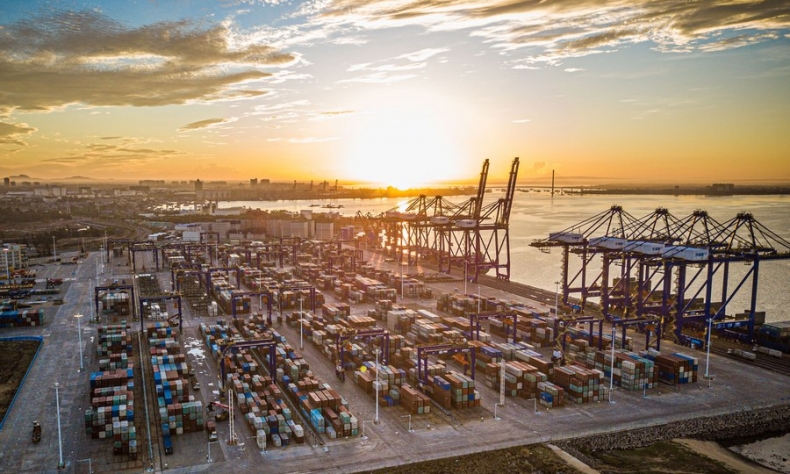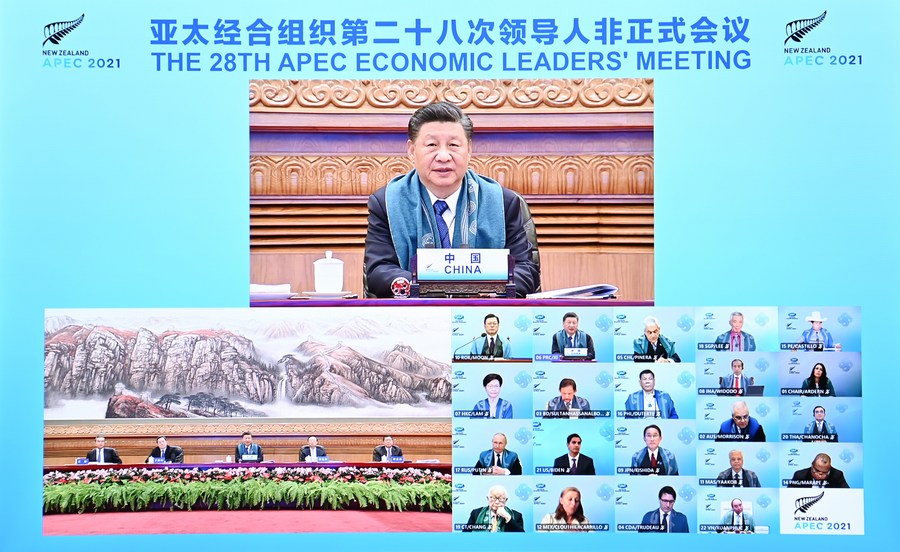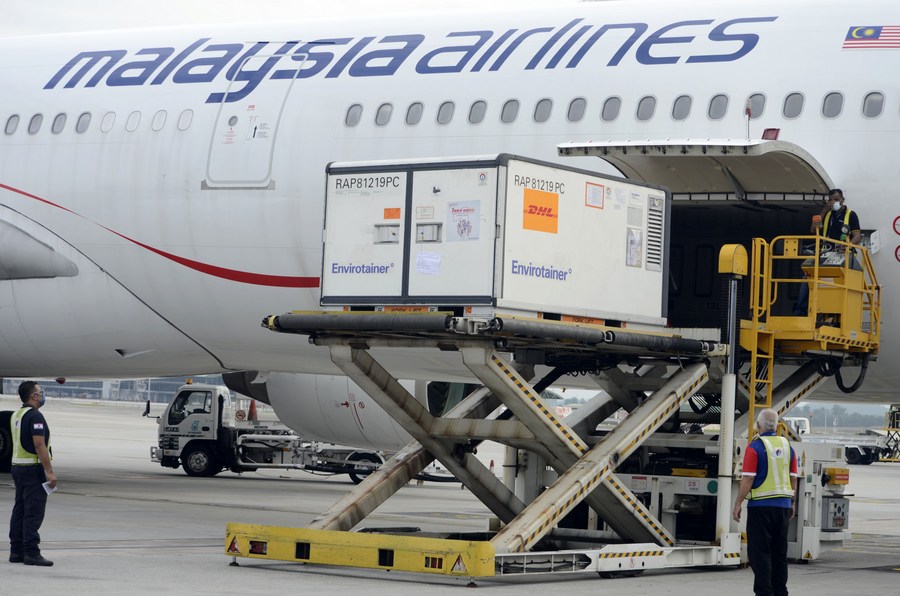Three Decades of Broadening Economic Cooperation Across the Asia-Pacific

It is a top priority in 2021 to boost global economic recovery and ensure growth rebounds quickly, the APEC economic leaders said in the joint declaration released during their recent meeting.
Had it not been for the COVID-19 pandemic, Auckland, New Zealand’s most populous city, would have been a busy place this month. Leaders, ministers and business communities from the 21 economies of the Asia-Pacific Economic Cooperation (APEC), including China, the U.S. and Russia, would have been gathering there to discuss the development and prosperity of the Asia-Pacific region.
Instead, New Zealand, which currently holds the rotating presidency, has decided to hold all of this year’s APEC meetings online, drawing together representatives from 11 time zones.
APEC, established in 1989, is the highest-level intergovernmental economic cooperation platform in the region. This year also marks the 30th anniversary of China’s joining the alliance. While addressing the 28th APEC Economic Leaders’ Meeting on November 12, Chinese President Xi Jinping said, “It has been three decades of deepening reform and opening up for China, and of broadening economic cooperation across the Asia-Pacific.”
Those member economies have reaffirmed their commitment to responding to the immediate crisis generated by the pandemic through urgent work, and to strengthening cooperation so that the region can return to growth in a way that is more innovative, inclusive and sustainable, according to a joint declaration.

Against the pandemic
“For APEC members, greater solidarity and closer cooperation are the key to clinching the final victory in this life-and-death battle against COVID-19,” Ruan Zongze, Executive Vice President of the China Institute of International Studies, told Xinhua News Agency, adding that “it was a stark reminder that all countries, whether rich or poor, share the same home planet, and no one can emerge unscathed from common challenges.”
“We need to follow a science-based approach in pandemic response and deepen international cooperation,” Xi said, adding that China will continue to provide support to the Sub-Fund for APEC Cooperation on Combating COVID-19 and Economic Recovery.
The country has so far provided over 1.7 billion doses of vaccines to the world, including donations to more than 110 countries. It has also offered $3 billion over the next three years to support COVID-19 response and economic and social recovery in fellow developing countries.
Xi also called on APEC members to promote the research, development, production and fair distribution of vaccines, ensure their accessibility and affordability in developing countries, and close the immunization gap.
The APEC members have vowed to continue to support global efforts to share vaccines equitably and expand vaccine manufacture and supply, including through the voluntary transfer of vaccine production technologies on mutually agreed terms, and through voluntary reduction of the cost of COVID-19 vaccines and other medical supplies.

Striving for recovery
The International Monetary Fund (IMF) in October adjusted its 2021 economic growth forecast for the Asia-Pacific region to 6.5 percent, down by 1.1 percentage points from its April projection.
“The resurgence of the pandemic, amid initially low vaccination rates, slowed the recovery in the Asia-Pacific region, especially in emerging markets and developing economies,” Changyong Rhee, Director of the IMF’s Asia and Pacific Department, said at a virtual press conference.
The COVID-19 pandemic has had a devastating impact on regional economies as well as health and livelihoods, and hit some economies harder than others, especially the least developed ones. However, the region remains the fastest-growing in the world. “The signs of growth are already being seen,” said Stephen Jacobi, Executive Director of the APEC Business Advisory Council and the New Zealand International Business Forum.
“Despite the pandemic, APEC has completed its annual cycle strengthened rather than weakened it,” Gary Hawke, a board member of the New Zealand Committee of the Pacific Economic Cooperation Council, said, echoing Jacobi’s sentiments.
Together, APEC member economies now account for about 3 billion people, 50 percent of global trade and 60 percent of the world’s total GDP.
Statistics show that since the implementation of the Bogor Goals of free and open trade and investment approaches in 1994, the average tariffs of APEC members have dropped by 60 percent, the number of products enjoying zero-tariff treatment has doubled, and the number of regional trade integration agreements that APEC members participated in has witnessed an eightfold increase.
It is a top priority in 2021 to boost global economic recovery and ensure growth rebounds quickly, the APEC economic leaders said in the joint declaration released during their recent meeting.
Noting that structural reform will also be a critical tool for promoting such recovery, they welcomed the Enhanced APEC Agenda for Structural Reform, which provides for collaboration on growth-focused reforms designed to be inclusive, resilient, sustainable and innovation-friendly.
The bloc said the rules-based multilateral trading system, with the World Trade Organization at its core, plays an important role in economic recovery, as trade plays a crucial role in ensuring future prosperity.
They also promised to advance economic integration in the region and the APEC Free Trade Area of the Asia-Pacific (FTAAP) agenda, to contribute to high-quality and comprehensive regional undertakings.

Eyeing future cooperation
Calling openness “the lifeline of Asia-Pacific cooperation,” Xi urged APEC members to uphold open regionalism, follow the guidance of the APEC Vision 2040, which was established last year to advance regional economic integration, and work for the early realization of a high-standard FTAAP.
The broader goal of the FTAAP is still very much a vision of the APEC business community, Jacobi said.
“A more opened-up region is a more united one,” said Bambang Suryono, Chairman of Indonesian think tank Asia Innovation Study Center. Free trade is a win-win for all participants in the long run, and will serve as a catalyst for changes in the fields of business environment, social governance as well as the legal system, he added.
Xi also said that all members should implement the APEC Internet and Digital Economy Roadmap in a full and balanced manner, further develop the digital infrastructure, and strive to bridge the digital divide.
“The pandemic has propelled the trend of e-commerce, which was already happening, [giving it] a real shot in the arm,” James Laurenceson, Director of the Australia-China Relations Institute at the University of Technology Sydney, said, adding that China is by far the global leader in the e-commerce trend and its role in the region is becoming increasingly prominent.
The APEC leaders also launched the Aotearoa Plan of Action toward realizing the APEC Vision 2040. “While it underpins prosperity in the short run, leaders have also used the Aotearoa Plan of Action to focus on the choices that will support the Asia-Pacific’s future generations,” New Zealand Prime Minister Jacinda Ardern said.
Siah Hwee Ang, an international business professor at the Victoria University of Wellington, said the vision is achievable. For example, the vision on trade, investment and inclusive growth will continue to be pursued, he said, adding that some aspects will be strengthened quickly, especially innovation and digitalization.
 Facebook
Facebook
 Twitter
Twitter
 Linkedin
Linkedin
 Google +
Google +










